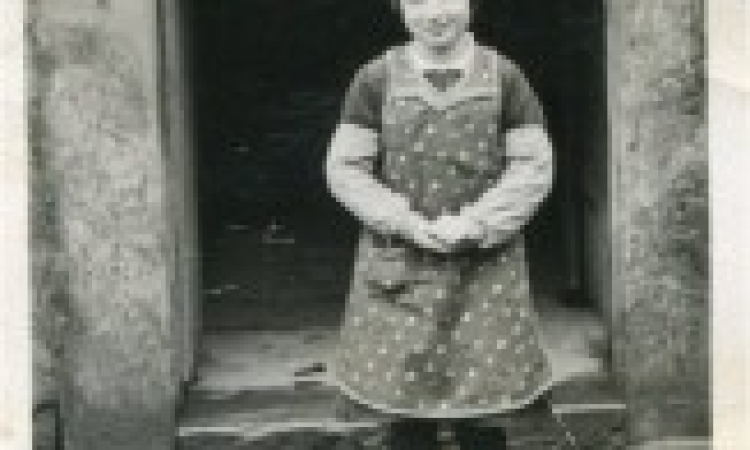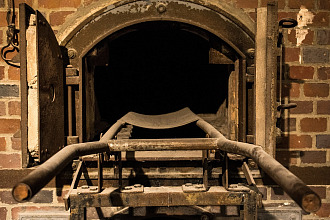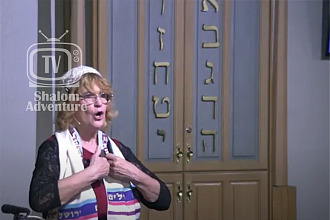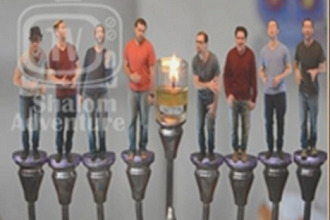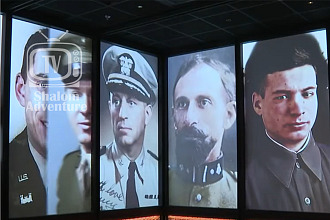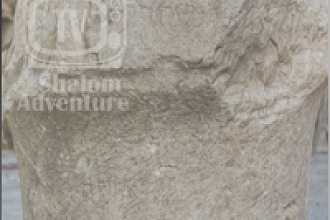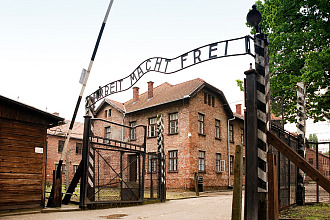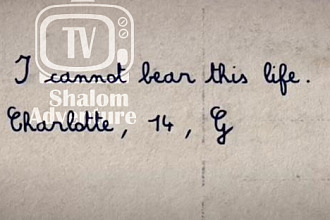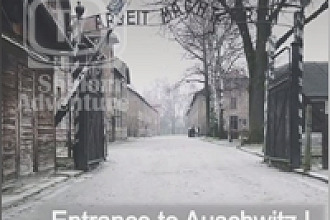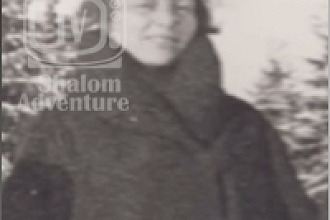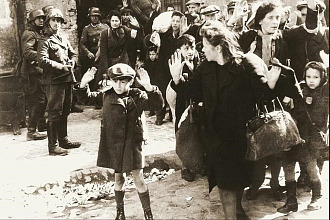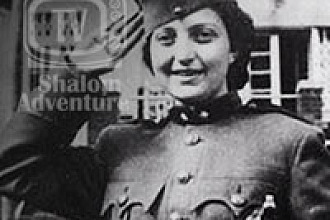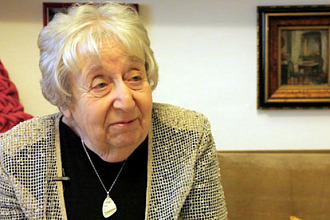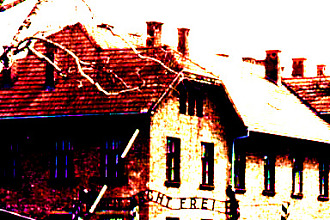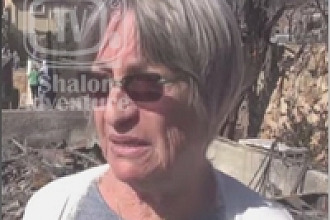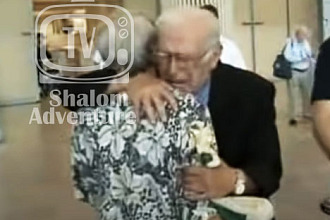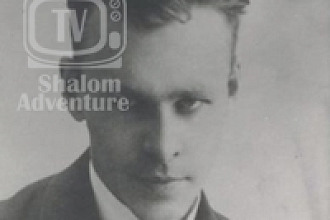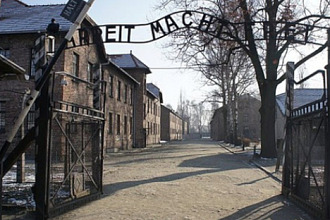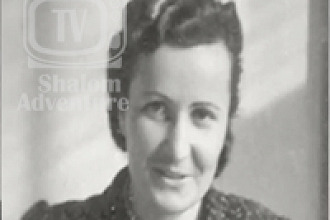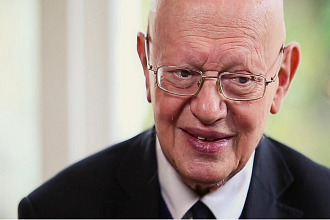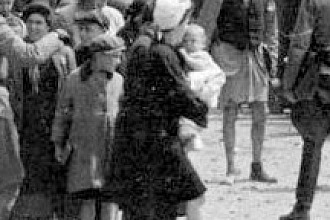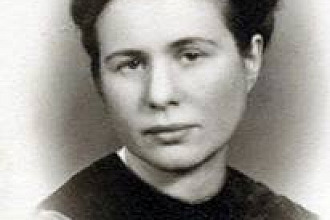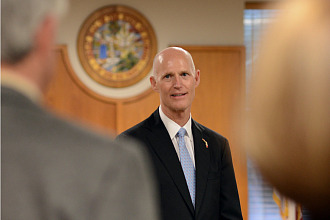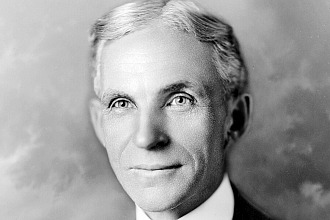Edith Goldberg spent her early life in Teschenmoschel, a small village near Kaiserslautern, Germany, where she was born in 1928. Her family were farmers living in a small village of about 200 people. The village had a small Jewish community; originally it had been bigger, but over time people had left or died. There was a synagogue, and a Jewish cemetery dating back to 1665 that served the small villages in the area. Edith describes a normal, happy childhood with her parents and sister, hay-making in the summer and tobogganing in the winter. The family kept to the Jewish traditions and Edith remembers going to synagogue services until 1933, when everything began to change.
Edith began going to Hebrew school at the age of 5, also in 1933, but was only able to go three or four times because of the changes that were happening in Germany. She remembers that people who used to come to the house stopped coming and eventually the small shop the family ran in the village, which sold loose flour, sugar, washing powder and similar commodities, had to close. The people who had helped on the farm with the harvest and hay-making gradually left.
Edith's uncle returned home to the village, having been forced out of his job in Frankfurt. Other Jewish families left the village, one emigrating to America, but Edith's mother was responsible for several elderly relatives which made it difficult for her to consider leaving. Edith's memories are those of a young girl but she remembers feeling frightened and that people in the village were no longer friendly towards them. During Kristallnacht, in November 1938, plain clothes police came for her father and uncle in the middle of the night and took them away. Everything in the local synagogue was taken outside and burnt. By this time the family had a radio and began to realize how bad things had become.
Shortly after Kristallnacht Edith's mother traveled to Koln to see if she could get her husband and brother released. They returned after two or three weeks, but Edith remembers them being changed after their experience, quiet and reluctant to talk.
After Kristallnacht the Nazis ruled that all Jewish children had to leave school. Edith couldn't understand why this was, but as there wasn't a Jewish school in the vicinity she no longer went to school at all. Instead she and her sister used to play together at home. As children they found it hard when St Nicholas didn't come to them with an orange on 6 December like he normally would. By this time Edith's mother was working hard to try to get her children out of Germany. She contacted the refugee committee in England who managed to find two families in Leeds, living next door to each other, who were willing to take Edith and her sister as refugees.
Edith's parents took Edith and her sister to Frankfurt to meet the other children traveling out of Germany. They were put in the care of two 16-year-old girls. Edith can remember her mother crying and her father looking stern. She doesn't think she and her sister, who was two years younger than Edith, really understood what was happening. Nazi officials got onto the train at the German border to make sure the children didn't take any valuables with them, though they were more interested in the older girls than Edith and her sister. The children were allowed one small case between them. Edith had a doll and both she and her sister were wearing little rings, along with a tiny necklace that Edith's mother had given her which she kept well hidden.
Edith had never been on a boat or even seen the sea before. They took the overnight ferry from Rotterdam to Harwich and despite the calm journey; Edith was the only one who was sick. At Harwich she and her sister were met by two ladies who accompanied them by train to Leeds station where they met their new foster parents. Edith stayed with Mr. and Mrs. Craskin, while her sister was next door with the Bloomfields. It was an emotional time for the two girls - their birthdays were a week apart, with the journey in the middle.
Three days after their arrival, the girls started attending Cowper Street School. There were about half a dozen refugee children there. Edith and her sister didn't speak any English at all when they first arrived, but did not take long to learn. More than 60 years later Edith is still friends with a group of girls she met at school.
Edith feels she was lucky to have found a good foster family who treated her the same as they did their own children. The Craskins had three daughters who were slightly older than Edith and she is still very friendly with her adoptive sisters. Her younger sister was less happy, so after the war was over she went to live with cousins in Belgium where she met and married a Frenchman. Edith went to stay with her cousins in Belgium during an illness, but after a year she came back to her job and family in Leeds.
When she left school at the age of 14 Edith started work at Schofields in Leeds, one of the youngest to work on the shop floor rather than the workshop. She became naturalized, but before that point she had to get permission from the police to leave Leeds to go on holiday to Scarborough. She met Jack while he was on leave from the army, and two years later they got married. They have been happily married for over 60 years.
Edith has returned to Teschenmoschel on several occasions. She has been back to the house that used to be her family home, which has now been modernized, and made contact with a former school friend who still lives in Germany. Sadly she knows little about her parents' fate other than the most basic information. They were transported to the Camp de Gurs in 1940 and then to Auschwitz-Birkenau in 1942, where they were murdered.
Originally found here

